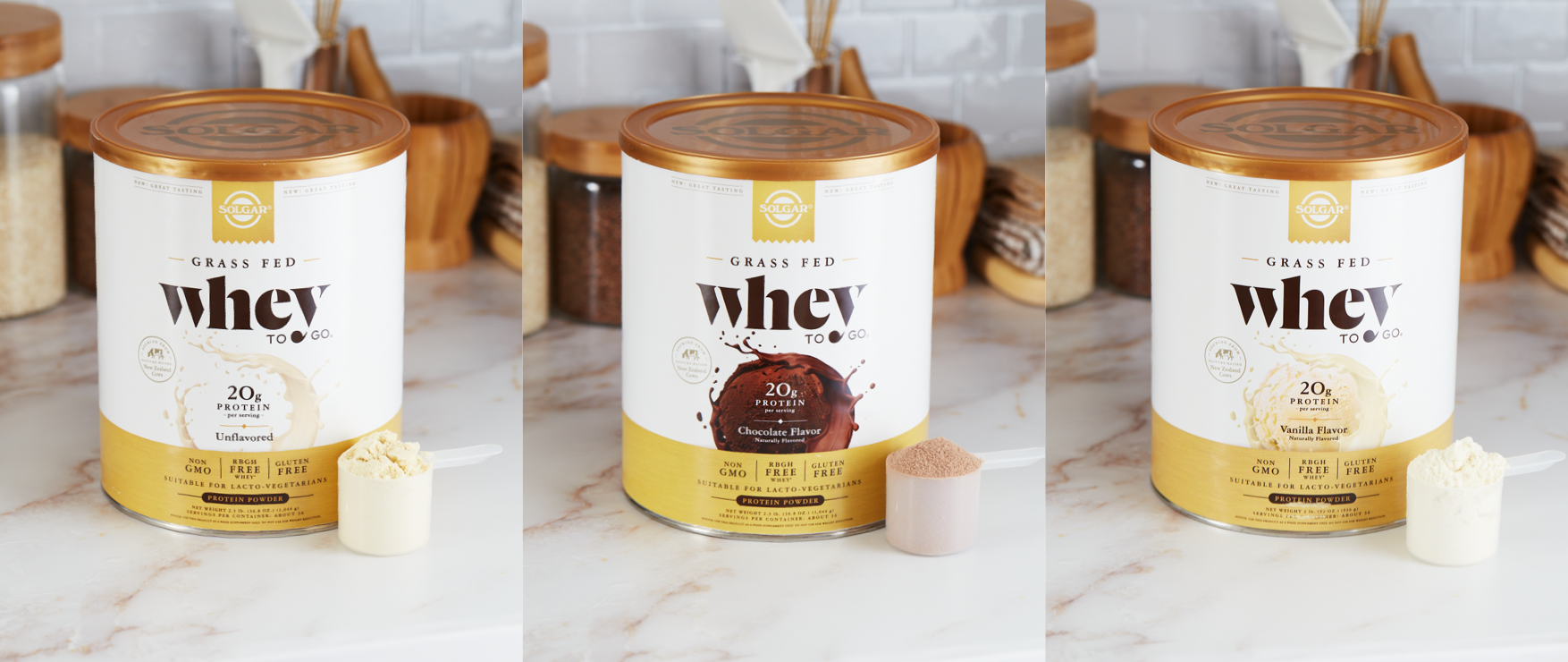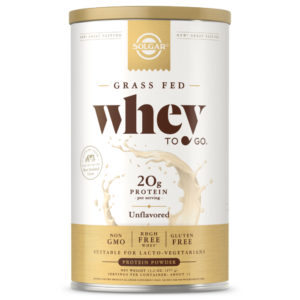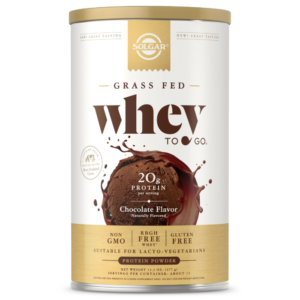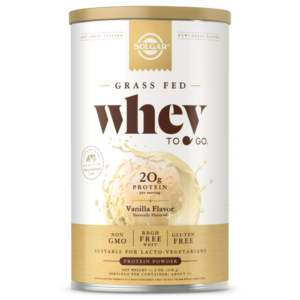Key Takeaways:
- Protein supports several health benefits including muscle growth and bone development.
- Key considerations of a good protein powder include the protein source, ingredients, and taste.
If you have health and fitness goals, then you’ve probably considered including a protein powder supplement in your diet. But with so many to choose from, it’s important to know what the best protein powder is for your goals and needs. That’s where we come in!
We’ve broken down the key considerations to look for when shopping for a protein powder below. But first, let’s dive into the benefits of including protein in your diet.
Why is protein an important part of a healthy diet?
Nearly every body part is made up of protein—from our muscles to our bones and skin—and is essential for many processes that help your body function. Protein is made up of 20 different amino acids, the molecules that combine to form proteins. Your body can produce some of these amino acids, but nine of these must come from food.1
For that reason, consuming enough dietary protein is crucial.
Protein supports healthy muscle growth and development
Your muscles are primarily made up of protein, so it’s no surprise that they need protein to repair and rebuild. When you work out and place greater than normal resistance on your muscles, small tears occur which explains the soreness that you feel after exercise. These tears are perfectly normal, unless it gets to the point of strain or injury. With the help of protein, your body breaks down the amino acids it uses to repair and rebuild lost and damaged muscle tissue.2
Protein helps satisfy appetite
If you want to stay full longer, just turn to protein! One high-protein meal can help satisfy your appetite and improve portion control.3 Furthermore, individuals who consume extra protein at breakfast are more likely to eat less later in the day.4 Including additional quality protein in your diet can also help with maintenance of muscle during periods of reduced calorie intake as part of a healthy weight management program.
Solgar® Essential Amino Complex Vegetable Capsules provides free-form essential amino acids to promote optimal absorption and assimilation.*
Learn more about how amino acid supplements can support your fitness goals.
How much protein should you eat per day?
Because protein is an essential macronutrient (along with carbohydrates and fats), we generally need to include a higher amount in our diet. The National Academy of Medicine recommends adults consume a minimum of 0.8 grams of protein for every kilogram of body weight or 7 grams for every 20 pounds of body weight.5 For example, a 200-pound person would need around 70 grams of protein per day. However, this is the minimum. Other factors such as your exercise routine, age, and health status will also determine your protein intake. For example, if you are trying to gain muscle you should consume 0.5 – 0.8 grams of protein per pound of body weight.6 Checking with your healthcare provider is a great way to assess how much protein suits your unique needs.
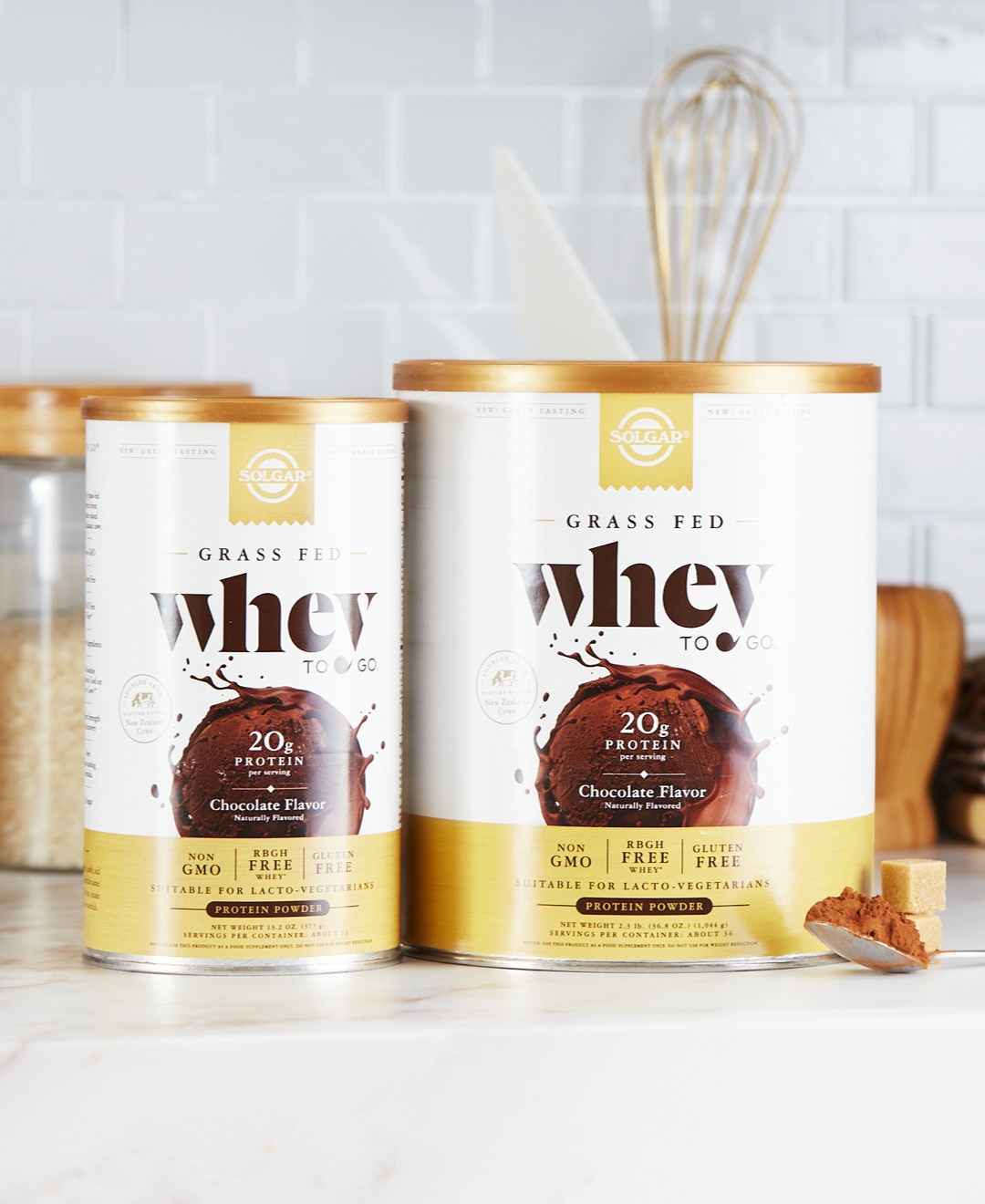
Protein powder supplements vs. whole foods
The first way to get your protein intake is through whole foods. Consider protein powder as a supplement to your diet rather than a replacement. But if you struggle to consume foods high in protein or have higher protein needs due to an active lifestyle, protein powders are a convenient way to meet your goals.
Can I take protein powder without exercise?
While athletes or people who are active and working to build or maintain muscle might need to consume more protein powder to meet their fitness goals, you can still benefit from protein powder even if you’re not constantly active. As long as you’re informed of your daily protein needs and prioritize protein from whole foods first, there’s nothing wrong with adding a serving of protein powder into a smoothie or snack.
With so many protein powders out there, how do you know what to buy? Take a look at our guidelines below to help you choose the right one for you!
How to choose the best protein powder: 3 key considerations
1. What’s the protein source?
This comes down to whether the protein was sourced from animals (milk-based) or plants (plant-based). Choosing a protein powder based on its source will be largely based on your own dietary preferences.
Animal-based protein powder
- Whey protein: Whey is a byproduct of turning milk into cheese. This is one of the most common sources of protein powder because of its strong link with increasing muscle strength, especially right before or after a workout.7 It’s also known for being one of the most digestible proteins and is relatively higher in branded-chain amino acids supporting muscle protein synthesis as compared to other protein sources.8
If you’re looking for a premium whey protein supplement, look no further than the gold standard:
Solgar® Grass Fed Whey To Go® offers 20 grams of protein per serving. It’s completely rBGH free*, with no routine antibiotics used on our pasture-raised New Zealand dairy cows.* It’s available in three flavors: chocolate, vanilla, and unflavored. Our protein powders are also non-GMO, gluten-free, and soy-free.
- Casein protein: Like whey, casein protein is also a byproduct of turning milk into cheese. However, casein is absorbed and digested at a slower rate compared to whey protein.9
Plant-based protein powder
These non-dairy sources of protein are an ideal way to reach your protein consumption if you experience dairy sensitivities or eat a vegan or vegetarian diet.
- Soy protein: Derived from soybeans, soy protein contains all nine essential amino acids to support muscular strength and the body.10
- Pea protein: Pea protein powder supplements use the protein isolated from ground yellow peas. It also contains all nine essential amino acids your body needs from food, but is limited to methionine.11 For this reason, it’s important to consume pea protein alongside other sources of protein containing methionine.
- Hemp protein: Known as a quality protein source, hemp protein is made by grinding pressed hemp seeds into a fine powder. It contains all nine essential amino acids that we need from food and it’s an easily-digestible form of plant-protein.12
2. Are there additives or allergens?
Many protein powders, primarily plant-based and whey protein powders, may contain sugar and artificial sweeteners because they become more bitter once processed. Be mindful of the labeling and ingredient lists to learn more about sugar content. Solgar® Grass Fed Whey To Go® Protein Powders only contain 3 grams or less of sugar per scoop.**
And if you suffer from food allergies such as gluten, soy, or dairy—choose a protein powder that is clearly labeled so that you can avoid those allergens.
3. How does it taste?
If you’re in the market for a protein powder, it’s important to find one you actually enjoy, especially if you want to add it to your smoothies, waffles, or homemade protein bars. We offer unflavored, chocolate, and vanilla Grass Fed Whey To Go® flavors to choose from.
GET THE LATEST UPDATES AND EXCLUSIVE DEALS WHEN YOU SIGN UP FOR OUR NEWSLETTER!
Not all protein powders are created equal
Finding a protein powder that is both delicious, effective, and healthy isn’t always easy. By considering the protein source, other ingredients, and taste, you’re surely going to choose the best one for your health needs!
*These statements have not been evaluated by the Food and Drug Administration. These products are not intended to diagnose, treat, cure or prevent any disease.
**Not a low calorie food
The information provided on this site is intended for your general knowledge only and is not a substitute for professional medical advice or treatment for specific medical conditions. Always seek the advice of your physician or other qualified healthcare provider with any questions you may have regarding a medical condition. The information on this website is not intended to diagnose, treat, cure or prevent any disease. Never disregard medical advice or delay in seeking it because of something you have read on the Solgar® site.


